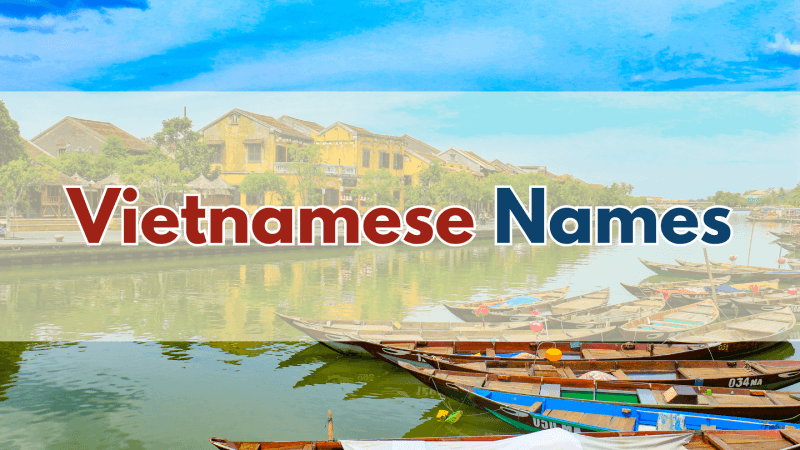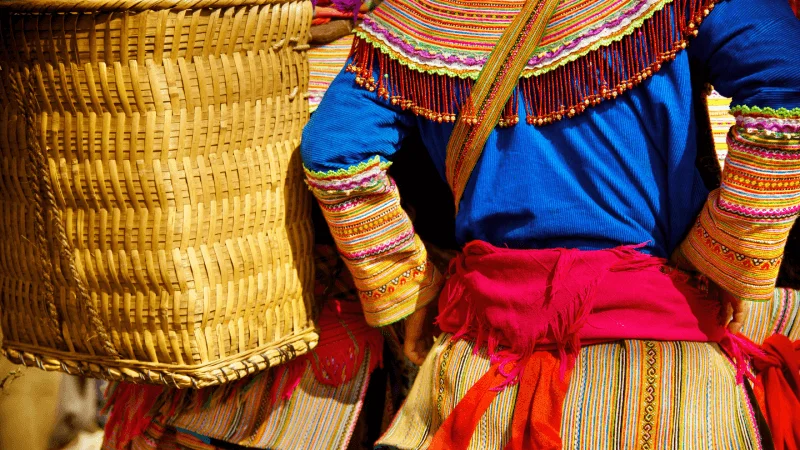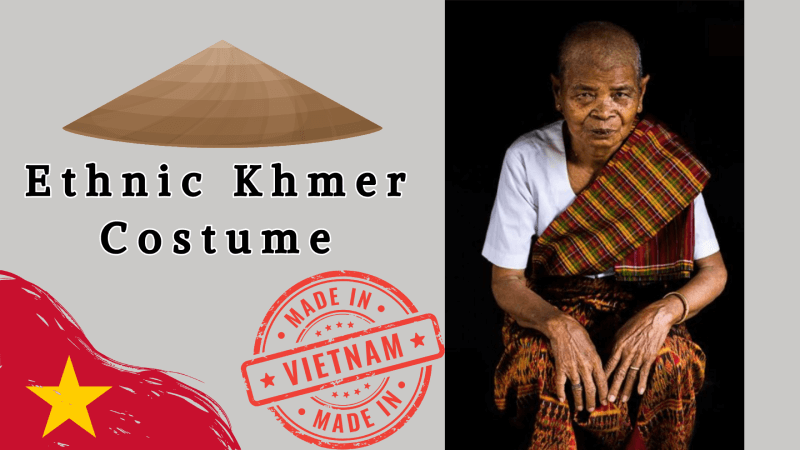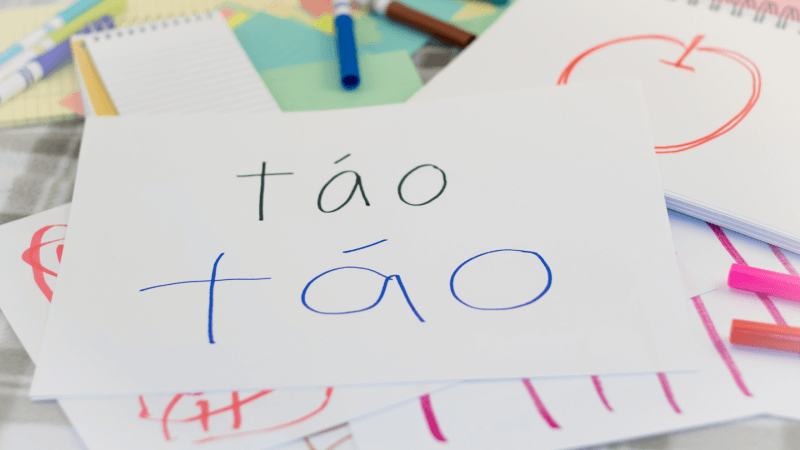Vietnamese names are a gateway to understanding the nation's rich cultural heritage, representing the diverse ethnic landscape and historical depth of Vietnam.
Each name, from common to rare, carries with it a story of family, tradition, and values, deeply entrenched in the cultural fabric of the country.
This exploration delves into the meanings, etymologies, and modern trends in Vietnamese naming practices, offering insights into how names serve as cultural markers and personal identifiers across generations.
As you explore this fascinating aspect of Vietnamese culture, don't forget to stay connected with an iRoamly Vietnam travel eSIM, perfect for sharing your experiences with friends and family.

Structure of Vietnamese Names
The structure of Vietnamese names is like a puzzle, each piece telling a part of a story. Vietnamese names traditionally follow a specific order: surname, middle name, and given name.
The surname comes first and connects individuals to their ancestry, reflecting family lineage and heritage. Middle names often carry additional meaning and can highlight personal traits or family aspirations.
Finally, the given name is unique to the individual, chosen with care and intention to convey the qualities parents wish for their child.

This structure isn’t just about formality; it influences how people perceive themselves and others in society. Having the surname first underscores the importance of family and community, reminding individuals of a shared history and collective identity.
Meanwhile, the given name allows for personal expression, shaping one’s identity within a larger cultural framework. This blend of family and individual identity creates a rich tapestry of personal and cultural significance, reflecting the essence of Vietnamese society.
The Cultural Significance of Vietnamese Names
Vietnam is home to a vibrant tapestry of 54 ethnic groups, each with its own unique naming traditions. Let’s dive into a few notable groups: the Tay, Thai, Muong, and Hmong.
The Tay people, mostly residing in the northern regions, have a deep respect for nature and ancestors, often reflected in their names. Names like “Hoang” (yellow or royal) and “Bach” (white) depict elements of color and class, honoring their rich cultural heritage.

Diverse Naming Traditions of Vietnamese Ethnic Groups
The Muong, from the midlands of Northern Vietnam, have a unique approach to names too. They often characterize social status and family lineage in their names. Names like “Biên” (sea) and “Sơn” (mountains) symbolize strength and resilience.
Unlike other groups, the Muong have a tradition of using names that have been passed down through generations, creating a sense of continuity and belonging.
The Hmong people, known for their vibrant culture and colorful clothing, have intriguing naming customs too. Their communities are tight-knit, and this is mirrored in their names.

Each Hmong child is given a name that signifies qualities desired by their family, such as “Chai” (strong) or “Mai” (blossom). A unique aspect of Hmong naming is the use of clan names, which strengthens family ties and community identity.
These examples show the diversity and depth in Vietnamese naming traditions. Each ethnic group pours a bit of its world view into naming customs, illustrating values, geography, and history.
Through names, they carry forward stories and preserve their distinct identities even as modern trends and influences emerge.
Modern Naming Trends in Vietnam and Abroad
Vietnamese names are going through some interesting changes these days. Younger generations are blending tradition with modern influences, which is no surprise in our fast-changing world. Many parents still value the cultural significance of names, but they’re also more open to experimenting.
You might find a child with a traditional name like “Thanh” (clear and pure) paired with a more modern middle name. This mix creates a balance between honoring the past and embracing the future.
In addition, global influences have seeped into Vietnamese communities, especially among those living abroad. Vietnamese diaspora often adapt names to better fit their new environments while trying to stay connected to their roots.
It’s quite common to encounter Vietnamese children with names that carry a Western twist but still hold cultural significance. For instance, a child might have the name “Linh-Marie,” where “Linh” is a classic Vietnamese name meaning “soul” or “spirit,” and “Marie” is a nod to Western naming conventions.

It’s not just the diaspora communities embracing new trends. In Vietnam, exposure to different cultures through media and travel has instilled a more eclectic approach to naming.
This blending of traditional customs with contemporary influences is reshaping Vietnamese naming conventions in a manner that respects the old while embracing the new. It’s a beautiful symbol of how cultures can evolve while staying true to their essence.
Common Vietnamese Names and Surnames
When you think of Vietnamese names, a few surnames probably top the list: Nguyễn, Trần, and Lê. These are not just common; they dominate the population. In fact, Nguyễn alone is held by about 40% of the Vietnamese people.
This proliferation stems from historical influences and dynastic eras, when the Nguyen Dynasty, in particular, left an indelible mark. These surnames act as anchors, tying individuals to a collective national identity and history.

But what about given names?
They’re rich in meaning and widely varied. For boys, “An” (peaceful) and “Duc” (virtue) are popular choices, reflecting parents’ hopes for calmness and integrity. Girls might be named “Lan” (orchid) or “Thuy” (water), both carrying connotations of beauty and grace.
These names aren’t just common; they’re cherished across generations. They embody qualities and virtues that are considered important in the family, and cleverly express the soul and values of traditional Vietnamese culture.
These names aren’t just labels; they are pieces of identity handed down with love and intention.
Popular and Rare Vietnamese Names
Vietnamese names are like little stories that tell us a lot about culture and traditions. Take “Nguyen,” for instance. It’s one of the most common surnames in Vietnam, showing up in the names of millions of people. “Nguyen” has historical roots, dating back to a powerful dynasty. It illustrates how names connect people to their historical identity.
Another popular name is “Anh,” meaning brightness or intelligence. This name reflects a parent’s wish for their child, a beacon of hope and wisdom.
It’s amazing how a simple name can capture so many dreams and aspirations. Then there’s “Minh,” a name encapsulating clarity and brilliance. Such names are popular because they carry a universal message of hope and potential.

Rare Vietnamese Names
Let’s peek into some rare Vietnamese names that hold unique tales. “Tra,” which means tea, is a name less commonly heard. Its origins are deeply linked to the lush tea plantations of Vietnam, significant for its cultural and economic importance. Parents choosing this name may wish to echo the simplicity and purity of tea in their child’s life.
Another rare name is “Khai,” which means “opening” or “beginning.” It’s often selected during important life transitions, such as new beginnings or the dawn of a new era.
This name bears a message of hope for fresh starts and renewed possibilities. In choosing such names, families express their hopes and the historical and cultural significance embedded in their lives.
And then there’s “Luyen,” a name symbolizing refinement and perseverance. It’s not very common, but it beautifully highlights the values of patience and mastery. These rare names might not be on everyone’s lips, but they are rich with meaning and heritage.
When parents choose these names, they’re not just selecting something that sounds nice; they’re passing down stories, values, and pieces of culture.

Legal Aspects of Naming in Vietnam
In Vietnam, the law plays a role in how names are given. For instance, Vietnamese naming regulations stipulate that all names should be written in the Vietnamese script. This ensures that names retain their cultural essence and are easily understood within the country.
Furthermore, there’s an emphasis on ensuring that names are appropriate and do not carry negative meanings or offensive implications. These rules help preserve a sense of cultural integrity and respect within society.

The laws also highlight the importance of maintaining heritage. While parents are free to choose names, these guidelines ensure that even with modern influences, the heart of Vietnamese tradition remains intact.
By balancing cultural preservation with personal expression, these regulations serve as a subtle but persistent guardian of the cultural framework within which Vietnamese names exist.
Conclusion
Vietnamese names are vibrant threads in the fabric of a rich cultural heritage. These names tell stories of tradition, family, and nature, beautifully reflecting the diverse roots of Vietnam’s 54 ethnic groups.
They also embrace a world of new influences while holding onto important traditions. As you explore exciting things in Vietnam, you’ll see how these names capture the essence of the country’s cultural evolution.
Younger generations are skillfully balancing modernity and tradition, showing that evolution and continuity can coexist. As they’ve done for centuries, these names will speak stories that echo through time, keeping the essence of Vietnam alive.
